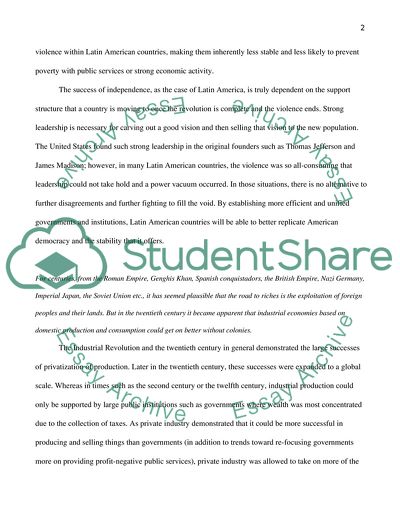The World Economy since 1800 Assignment Example | Topics and Well Written Essays - 1250 words. https://studentshare.org/macro-microeconomics/1820415-the-world-economy-since-1800
The World Economy since 1800 Assignment Example | Topics and Well Written Essays - 1250 Words. https://studentshare.org/macro-microeconomics/1820415-the-world-economy-since-1800.


